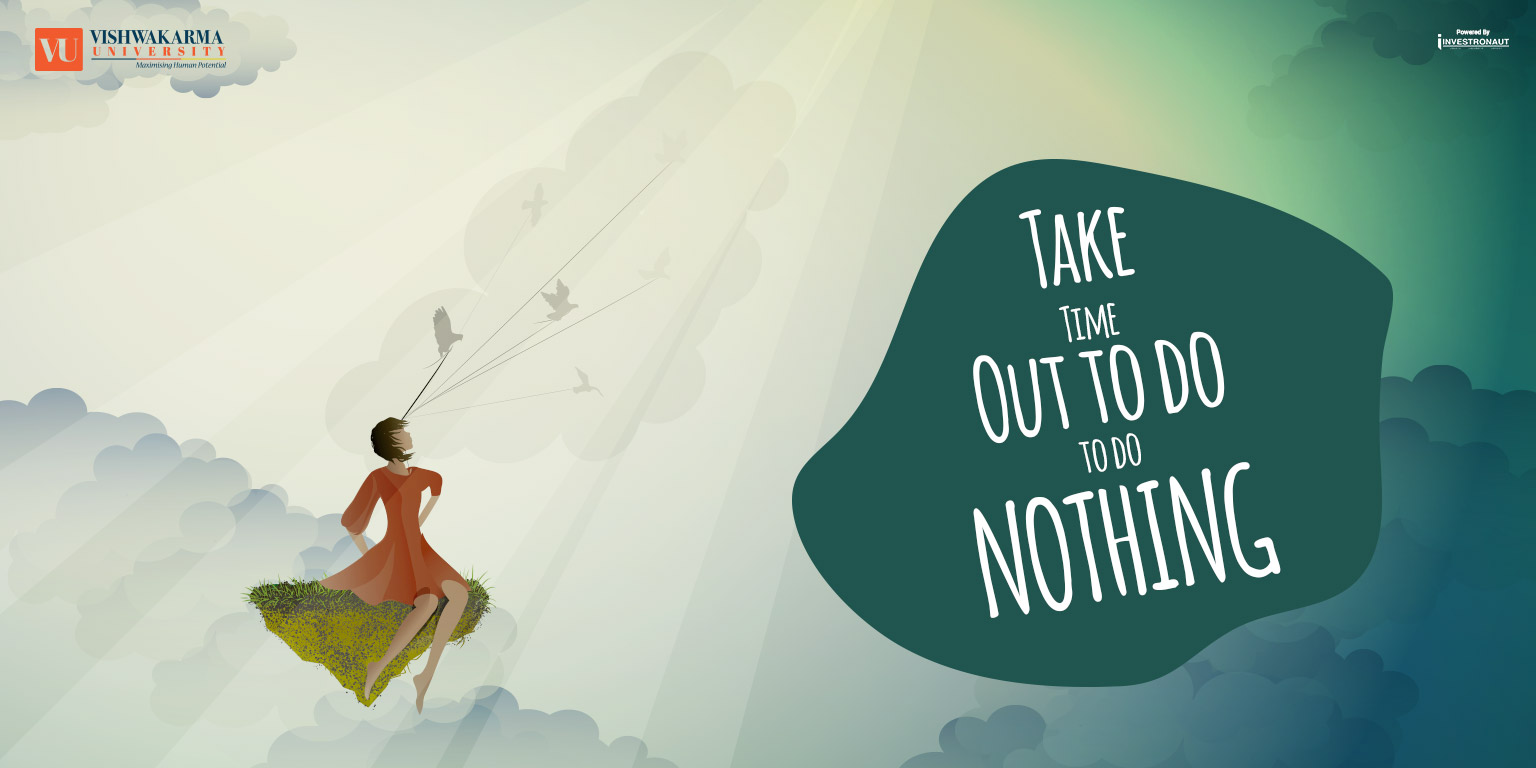The most effective means to remain in touch with our real self and to maintain a sense of identity is to indulge in reflection and introspection. The consequences of not taking time out to pause and reflect are psychologically wide-ranging.

"If we were not so single-minded
about keeping our lives moving,
and for once could perhaps a huge silence
might interrupt this sadness
of never understanding ourselves
and of threatening ourselves with death."
Poet Pablo Naruda’s lines from the poem ‘Keeping Quiet’ aptly describe our existence in the hyper-real world where we all seem to be continually pushing the Sysiphian wheel. We dare not waste a minute! In our relentless race to perform and produce, reflection and introspection have become lost arts. We are consumed by a temptation to just finish this or do that. The perils of perpetually denying ourselves uninterrupted time to reflect may result in losing connection not just with others, but also with ourselves. Denying the mind to wander off freely in different directions is counter productive to creativity, deep insights, productivity and personal growth.
Doing nothing and the culture of shame.
Try telling your parents that you want to take a year off to reflect on your life. You are likely to get an earful on losing out in the race! In most cultures, doing nothing is associated with shame, guilt and wasting time.
We also associate doing nothing with boredom. So, when we have free time, we try to fill it up with distraction-inducing activities like constantly checking our phone or watching TV which stimulates our brain, giving us the impression of being happy which makes it irresistible to stop. We get sucked in the vicious circle of social media - looking at pictures, liking and commenting on posts. It might give us an impression of being productive but the fact is that social media is a reactive medium, it lacks originality and its prolonged use burn us out psychologically.
Corporate Workplaces
Recently a video went viral on social media where an employee is shown being taunted by a colleague as he is leaving office after a grueling 9 hours of work. The employee gives a long befitting reply to him as to how he has a life outside the office too! As much as the video tickles us it is relatable and rooted in reality. Unfortunately the culture of putting in long hours at work is encouraged by contemporary organizations as it is useful for them. Employees who put in long time in office are rewarded, encouraged and supported for it suits their purpose. Instead of discouraging workaholism, organizations go by the attitude that “I am paying that person a salary, why aren't they at their desk when I am still in office?” A perception is framed that people working longer, work harder. But there is no relationship between working hard and working smart. Workaholic work environments are unhealthy, they may lead to serious mental and health problems, relationship breakdowns, low motivation etc. Companies fail to realize that the best employees are those who both act and reflect. Reflection requires unplugging from the compulsion to keep busy.
Compulsory Downtime
Somewhere down the line it is becoming acceptable to live at an unhealthy pace. But remember Newton discovered the laws of gravity while contemplating under a tree! Likewise Archimedes had his eureka moment in the leisure of his bath tub! Slower rhythm of life give our mind the necessary downtime.
Downtime, which includes reflection and introspection enables not only our creativity and our need for rest, it also enables the formation and maintenance of our deep sense of being and identity. Identity is discussed in terms of the Self by the great Swiss psychiatrist Carl Jung. For Jung, integration of all our life experiences into a whole forms the Self. This Self needs to be nourished with contemplation and introspection to maintain a sense of identity.
We need a certain balance and equilibrium within ourself and with our environment. Yet in the forever connected and time-driven world we inhabit, we are far from equilibrium. The time and space for personal reflection is often consumed by long work hours, social commitments and smartphone addiction, resulting in a lack of mental peace and quiet necessary for inner stability. Without the mind having free downtime our emotional, spiritual and psychological health will suffer. It is during ‘wasting time’ or downtime that our inner most self speaks to us. The events of the past that have held personal meaning for us whisper to us in those quiet moments.
So take long walks, longer naps and indulge in day dreaming to be the best and most efficient version of you.
The author of this article, Richa Singh is a content writer with Investronaut. She is a voracious reader and a keen traveller.


